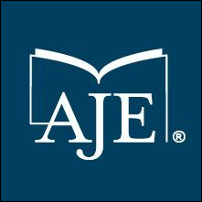Cooperation Modalities and Benchmarking for Good Governance In The New Reality
DOI:
https://doi.org/10.64423/arpa.v32i1.9Keywords:
cooperation, partnership, benchmarking, peer-to-peer learning, Astana Civil Service Hub, international indices, e-government, digital governmentAbstract
The new reality we live in today places governments on the fast-paced race for prompt solutions, underlining the ever-growing significance of collaboration and benchmarking, which can help every party to find “best fit” solutions for their own settings. In demanding new ways of cooperation, modern challenges show the high relevance of the multilateral platform that the Astana Civil Service Hub (ACSH) offers through various forms of partnership with its wide network of participating countries and partner institutions. Eventually, benchmarking and “best-fit” solutions that governments are searching for demand adequate measurements, including international indices that, as argued in this paper, require methodological improvements to meet the current development trends.
References
Alan, P., and Woollard, J. (2010) Psychology for the Classroom: Constructivism and Social Learning: Constructivism and Social Learning, Taylor & Francis Group Publishing. http://ebookcentral. proquest.com/lib/nottingham/detail.action?docID=515360
Andrews, M. and Manning, N. (2016) A Guide to Peer-to-Peer Learning. How can peer-to-peer support and learning be effective in the public sector? Effective Institutions Platform Publishing. https://www.effectiveinstitutions.org/files/The_EIP_P_to_P_Learning_Guide.pdf
Baimenov A. (2018) Bureaucracy and Cooperation, Global Encyclopaedia of Public Administration, Public Policy, and Governance.
Baimenov A. and Janenova J. (2019) Emergence of new model Trajectories of Civil Service Development in the Former Soviet Union Countries. Public Service Excellence in the 21st Century. Singapore: Palgrave Macmillan, pp. 105–143.
Baimenov A. and Liverakos P. (2019). Cooperation and partnerships for international development in the SDG-era Public Service Excellence in the 21st Century. Singapore: Palgrave Macmillan, pp 319-339.
Baimenov A. (2021) Welcoming remarks for Vice Ministers´ level online training course “Digital Transformation of Public Administration” https://www.astanacivilservicehub.org/articles/view/ acsh-supports-the-government-of-the-republic-of-kazakhstan-in-increasing-human-capacity-in- digital-transformation-of-public-administration.
Boeren, E. (2016) Lifelong Learning Participation in a Changing Policy Context: An Interdisciplinary Theory. Palgrave Macmillan UK. http://ebookcentral.proquest.com/lib/nottingham/detail.action?docID=4720178
Bougherra, M., Shaikh, A. K., Yenigun, C., Hassan-Yari, H. (2022) E-government performance in democracies versus autocracies. International Journal of Organizational Analysis, September 21, 2022.
Charalabidis, Y., Loukis, E., Alexopoulos, C., and Lachana, Z. (2019) The Three Generations of Electronic Government: From Service Provision to Open Data and to Policy Analytics. DOI: 10.1007/978-3-030-27325-5_1
Forrer, J., Kee, E.J., Boyer, E. (2014) Governing Cross-Sector Collaboration. John Wiley and Sons, Incorporated. Available at: http://ebookcentral.proquest.com/lib/nottingham/detail.action?docID=1766630
George Shaji, G.A. and George, A. S. (2020) Industrial Revolution 5.0: The Transformation of the Modern Manufacturing Process to Enable Man and Machine to Work Hand in Hand. Journal of Seybold Report 15(9): pp.214-234. Available at: https://zenodo.org/record/6548092#. Y3cOkcfP02x
Gobbi, M. (2010) Learning Nursing in the Workplace Community: The Generation of Professional Capital. Social Learning Systems and Communities of Practice. London: Springer. https://www.researchgate.net/publication/227248376_Learning_Nursing_in_the_Workplace_ Community_The_Generation_of_Professional_Capital
Guilmette, J.H. (2007) Power of Peer Learning: Networks and Development Cooperation [online]. International Development Research Centre, Academia Foundation. http://ebookcentral.proquest.com/lib/nottingham/detail.action?docID=306089
Hamidullina, E. R. (2019). Analysis of transparency in public finances and accountability of state bodies in the Republic of Kazakhstan. Bulletin of KazNU. Legal Series, 63(3), 223-228. https://bulletin-law.kaznu.kz/index.php/journal/article/view/1648/1591
Harrison, M. (2004). Why secrets? The use of secrecy in Stalin’s command economy. University of Warwick. PERSA Working Paper, (34). https://warwick.ac.uk/fac/soc/economics/staff/mharrison/ papers/secrecy.pdf
Kabbar, E. (2021). Comparative analysis of e-government development index (egdi). IADIS Press. Retrieved from https://www.ict-conf.org/wp-content/uploads/2021/07/01_202106L003_ Kabbar.pdf
Kidrisheva, S. B. (2021). Availability of Information as a Tool of Openness of State Administration. https://repository.apa.kz/bitstream/handle/123456789/894/Магистерский%20проект%20Кидришева%20С..pdf?sequence=1&isAllowed=y
Lehtonen, M. (2020) Harder governance built on soft foundations: experience from OECD peer reviews. Journal of Environmental Policy & Planning [online] 22(6): pp. 814-829. https://www.tandfonline.com/doi/epub/10.1080/1523908X.2020.1793746?needAccess=true
OECD (2003) Peer review: an OECD tool for cooperation and change. https://read.oecd-ilibrary.org/economics/peer-review_9789264099210-en-fr#page4
OECD’s Recommendation of the Council on Digital Government Strategies (2014). https://www.oecd.org/gov/digital-government/recommendation-on-digital-government-strategies.htm
OECD (2020) Digital Government Policy Framework: Six dimensions of a Digital Government, OECD Public Governance Policy Papers No 2. https://dx.doi.org/10.1787/f64fed2a-en; https://www.oecd.org/governance/the-oecd-digital-government-policy-framework-f64fed2a-en.htm
Skargren, F. (2020). What is the point of benchmarking e-government? Integrative and critical literature review on the phenomenon of e-government benchmarking. Information Polity, 25(1), 67-89. DOI:10.3233/IP-190131.
UN (2022) E-Government Survey 2022: The Future of Digital Government (2022), UN DESA. https://desapublications.un.org/sites/default/files/publications/2022-09/Web%20version%20E-Government%202022.pdf
Voets, J., and Rynck F. (2008) Exploring the Innovative Capacity of Intergovernmental Network Managers: The Art of Boundary Scanning and Boundary Spanning. European Group for Public Administration EGPA, EGPA conference 2008. https://core.ac.uk/download/pdf/55870142.pdf
Wang, V. and Shepherd, D. (2020). Exploring the extent of openness of open government data: A critique of open government datasets in the UK. Government Information Quarterly, 37(1), 101405. DOI: 10.1016/j.giq.2019.10140 5.
Zuiderwijk, A., Pirannejad, A., and Susha, I. (2021). Comparing open data benchmarks: Which metrics and methodologies determine countries’ positions on the ranking lists? Telematics and Informatics, 62, 101634. DOI: 10.1016/j.tele.2021.101634
Downloads
Published
Issue
Section
License
Copyright (c) 2024 Alikhan Baimenov, Tolkyn Omarova, Diana Sharipova

This work is licensed under a Creative Commons Attribution-NonCommercial 4.0 International License.













